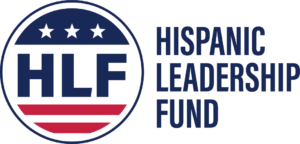WASHINGTON, D.C.–Today the United States Court of Appeals for the District of Columbia Circuit unanimously ruled against attempts by U.S. Representative Chris Van Hollen (D-MD) to force the Federal Election Commission to unilaterally change its donor disclosure rules, The Hispanic Leadership Fund previously filed, and the court accepted, its motion to intervene as a defendant in the case.
Hispanic Leadership Fund President Mario H. Lopez commented on the decision, saying “We are glad that the Hispanic Leadership Fund can be at the forefront of protecting the First Amendment rights of our members and all who seek to inform the American public about political candidates and their positions on issues. HLF will continue to oppose liberal attempts to force federal courts to impose rules restricting free speech. “
In 2011, after Congress failed to pass the DISCLOSE Act, a bill meant to counter the Supreme Court’s decision in Citizens United v. Federal Election Commission, which determined that corporations, including non-profits like the Hispanic Leadership Fund, have a constitutional right to engage in independent expenditures. The FEC declined to impose similar free speech restrictions through additional regulations. Van Hollen then filed this lawsuit as a last resort attempt to push courts to impose DISCLOSE Act-style regulations on groups that exercise their First Amendment rights.
“This case exposes the Left’s version of government: they want to force the FEC to unilaterally impose rules that the Supreme Court has already rejected and that twice failed in Congress,” said Lopez. “Because the Hispanic Leadership Fund spreads the message of liberty, opportunity, and prosperity, our organization and our growing number of supporters represent a threat to those in power who want to impose Big Government controls on Americans’ liberties, increase damaging government dependency, and severely hinder our ability to communicate our message.”
In the fall of 2010, the Hispanic Leadership Fund paid for an electioneering communication mentioning a candidate for Congress in a Florida congressional district. Had the rules that Van Hollen advocates been in place at the time, HLF’s speech could have been chilled due to concerns about the disclosure of donors. In the filings in this case, Van Hollen makes clear that he wants the ability to attack donors to groups funding ads, saying in a sworn declaration that he suffered injury, “because I cannot draw attention to the person or persons who finance electioneering communications about me. . . .” It is very clear that Van Hollen seeks these disclosures so that he can discourage outside speakers from exercising their constitutionally protected rights.
Jason Torchinsky, a partner at Holtzman Vogel Josefiak Torchinsky PLLC and counsel to Hispanic Leadership Fund, said, “Today the court recognized that the FEC struck the right balance between disclosure and speech when it issued its rules following Wisconsin Right to Life. Today’s victory is hugely important for any organization looking to spend money during the 2016 election cycle”

